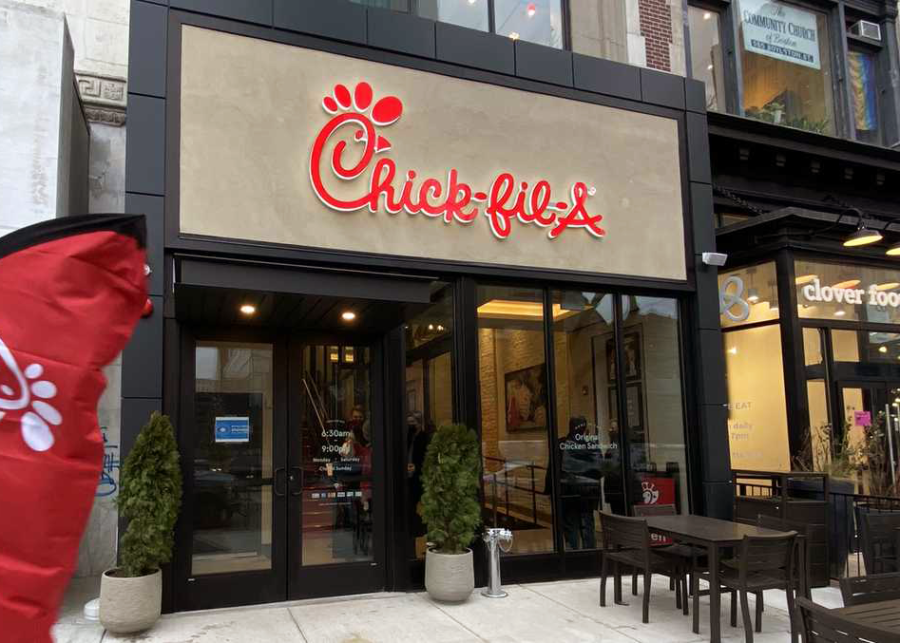Shein, She-Out
When scrolling through social media platforms, such as Instagram, Tiktok or Snapchat, users are bombarded with advertisements for trendy products that are often accompanied with bolded discounts and low prices. With a single tap, users can purchase an item from a company that sponsors their favorite influencer despite not knowing much about the brand.
In an era of increasing social justice and awareness, consumers must consider companies’ beliefs and labor practices. No matter the quality or price of the product, it is impossible to support a business without also supporting their beliefs.
In 2017, ThinkProgress reported that Andrew Truett Cathy, CEO of the popular fast food chain Chick-fil-A, donated over 1.7 million dollars to companies with infamous anti-LGBTQ agendas such as the Fellowship of Christian Athletes, the Salvation Army and the Paul Anderson Youth Home.
The money consumers spend by buying a single chicken sandwich, contributes to advertisements, increasing consumer demand and profit for the company. Rachel Sugar of Vox explains, “Part of Chick-fil-A’s popularity is due to a pretty simple fact: people eat there because they like the food, even if they don’t like what the Cathys stand for.”
Not only has Chick-fil-A promoted homophobia through its donations, but workers have also made accusations of mistreatment by the company. According to The Free Republic, Latif, a Muslim employee, says that he was fired a day after he refused to pray to Jesus Christ during a training session. Latif claims, “The company refuses to pay [his] medical bills and expenses incurred while a participant in Chick-fil-A’s employee benefit plan.” Latif is one of many Chick-fil-A employees who reported mistreatment on the job.
In another instance from an article by The Washington Post, a transgender woman filed a lawsuit against the company after being sexually harassed. When she reported the abuse to the restaurant’s owner, she was told, “It should be an honor […] that someone liked her enough to hit on her.” Unfortunately, Chick-fil-A is not the only large company reported to have mistreated their staff.
Shein, another popular company which sells trendy items for low prices, has recently drawn criticism for their harmful labor practices. According to Shein’s 2021 Sustainability and Social Impact Report, around 66 percent of their factories did not have legal working conditions concerning working hours, cleanliness, fire precautions, preparedness and pay. A report from Brightly states, “Shein workers work seven days a week, some getting a base salary of only 556 [dollars] per month to make 500 pieces of clothing per day. In total, that equates to earning two cents per item of clothing produced. At some factories, female employees wash their hair over their lunch break due to having no time to do so after their 18-hour-long work days.”
The vast majority of Shein’s popularity stems from social media platforms. #Shein on TikTok has amassed 711.6 million views. The company benefits immensely from a culture of materialism perpetuated by social media. An influencer has a trendy shirt, and you can get it too for only three dollars! Celebrities such as Khloe Kardashian, Tyga and Big Sean have attended Shein events and advertised them on social media. With the help of their massive follower base, Shein continues to thrive.
Consumers often overlook the violations of companies like Shein and Chick-fil-A because of their affordability and appealing advertisements. Although some may argue that affordability and accessibility are acceptable factors in determining what companies to buy from, purchasing from Shein promotes a cycle of harmful labor practices. A single purchase suggests to the company that it does not matter how they treat their employees and manufacture their goods, so long as they reap a profit.
Many believe that stopping their business with the company won’t make a big difference. Olivia Huynh (III) comments, “People don’t really think about the consequences of supporting businesses because they assume they don’t have any power over such a big corporation, and that what they do doesn’t make a difference, but it really does if that’s the mindset of every single person.”
Throughout history, people have united to stop common injustices and have successfully pressured institutions into reconsidering their practices, from the bus boycotts of the Civil Rights Movement to recent boycotts against popular outerwear company Canada Goose. The power consumers hold is immense. By abstaining from interacting with these businesses, consumers can make change and force companies to reconsider their harmful beliefs and practices.







